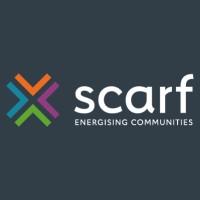
Leading energy efficiency charity, Scarf, has appointed Susan Mackie as its new chair.
A board member for the past three years and vice-chair since November 2021, Susan has helped navigate Scarf through the pandemic and, more recently, the ongoing cost of living crisis whilst providing trusted counsel to colleagues and overseeing the implementation of new digital technologies.
With offices in Aberdeen and Dundee, Scarf delivers an array of energy efficiency advice and services to businesses, households and communities. The multi-award winning organisation supports businesses and individuals across the north-east by reducing fuel poverty, promoting energy efficiency and lowering carbon emissions.
Susan brings a wealth of experience in data privacy and business systems management having held roles across the UK and Europe for local authorities, health and social care partnerships, and oil and gas companies over the past three decades.
She will be supported by joint chief executives, David Mackay and Lawrence Johnston, as well as outgoing chair Ed Rennie – who retains a place on the Scarf board.
Mr Rennie said: “Susan is a well-known and highly respected figure with a track record of growing and developing organisations through leadership, strategic development, strong commercial management and customer service.
“As a valued member of our board, she has already demonstrated the knowledge, experience and credentials that will be the perfect fit for Scarf as we pursue our growth ambitions. I am certain that Scarf will continue to go from strength to strength under her guidance and wish her the very best of luck in the new role.”
In 2016, Susan established her own technology business, Care Apps Solutions, to develop and implement software solutions and support clients with their GDPR compliance. Susan also took part in the inaugural WES100, a gender balance programme designed and developed by Women’s Enterprise Scotland to provide women with leadership and boardroom governance training.
Commenting on the new appointment, Susan said: “I’m pleased to have been given the responsibility of leading Scarf through this crucial period in the organisation’s history as chair.
“With the support of my fellow board members and management, I’m confident we have the breadth of skills and wide-ranging experience to help us achieve our objectives over the coming years.
“I have thoroughly enjoyed being able to add value to an organisation that makes such an impact on communities right across the north-east and look forward to continuing to play a vital role in Scarf’s journey to help positively influence people’s lives through our range of targeted services and energy efficiency advice.
“One of the biggest challenges that I see is how people interact with Scarf. Especially in the aftermath of the pandemic, we need to find new and innovative ways to engage with people in an inclusive way which ensures we reach those most in need of our support – particularly those facing fuel poverty.
“I am passionate about human rights and love working in areas that can improve people’s lives. Having seen the impact Scarf makes on communities first-hand, I consider myself extremely fortunate to have the opportunity to build upon the positive and collaborative culture fostered during Ed’s tenure and cement Scarf’s standing as an employer of choice.”
Scarf’s founding mission was to make a practical difference to people living in fuel poverty, reduce inequality, and develop better living and working environments. Since 1985, it has offered free and impartial energy-saving advice to help people and businesses lower their fuel bills and carbon emissions.
The social enterprise has been listed numerous times as one of the Sunday Times’ best not-for-profit-organisations to work for – most recently in 2019 – and was awarded silver accreditation by Investors in People in 2021.

Scarf
Scarf is a developing organisation, aiming to connect with more people and make a lasting difference – alleviating poverty and reducing inequality.






























